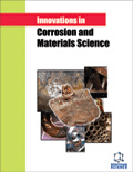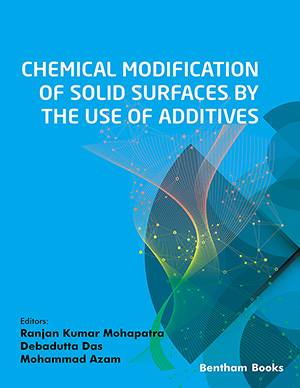Abstract
The anti-corrosion behavior of expired Fluconazole (2-(2,4-Difluorophenyl)-1,3-di(1H-1,2,4- triazol-1-yl)-2-propanol) as an inhibitor on mild steel was studied in a neutral chloride/sulphate solution, at room temperature using electrochemical techniques including electrochemical impedance spectroscopy (EIS) and potentiodynamic polarization. Fluconazole characterization was performed using FTIR. Polarization curves showed that both corrosion and film formed pseudo-passivation current density values were lowered by almost one order of magnitude and therefore fluconazole acts as an anodic type of inhibitor on the steel surface. Impedance measurements confirmed the decrease in the corrosion rate by almost an order of magnitude, as a function of inhibitor concentration. The electrochemical results showed that this compound has a corrosion inhibitor effect and the best results were achieved with 150 ppm of Fluconazole, remaining around 80% efficiency up to 160 hours of immersion.
Keywords: Electrochemistry, fluconazole (2-(2, 4-Difluorophenyl)-1, 3-di(1H-1, 2, 4-triazol-1-yl)-2-propanol), inhibitor, neutral chloride, steel corrosion.
Graphical Abstract
 26
26 1
1







